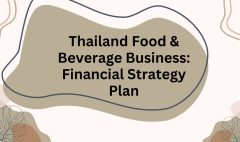Venturing into the Food and Beverage (F&B) Business
Venturing into the Food and Beverage (F&B) Business
This live project revolves around the exploration and development of a business plan for entering the Food and Beverage (F&B) industry. MBA students will engage in a hands-on experience to understand the nuances of launching and managing a successful F&B venture, covering various aspects from concept ideation to operational execution.
Key Components:
- Concept Development: Explore and define the concept of the F&B business, considering factors such as cuisine type, theme, and target market. Emphasize differentiation and uniqueness to stand out in the competitive F&B landscape.
- Market Research: Conduct a thorough market analysis to identify consumer preferences, trends, and potential competitors in the chosen F&B segment. Understand regional and demographic variations that might impact the business strategy.
- Location Analysis: Evaluate potential locations for the F&B establishment, considering foot traffic, accessibility, and demographic profiles. Assess the local competition and regulatory requirements related to opening and operating a food business.
- Business Model and Revenue Streams: Develop a robust business model outlining revenue streams, pricing strategies, and cost structures. Consider additional revenue sources such as catering services, partnerships, or product extensions.
- Menu Development and Sourcing: Collaborate on the creation of a well-curated menu that aligns with the business concept. Explore sourcing options for quality ingredients and establish relationships with suppliers to ensure consistency in product offerings.
- Operational Plan: Outline the day-to-day operations of the F&B business, covering kitchen management, staffing, quality control, and customer service. Emphasize efficiency in processes and scalability to accommodate growth.
- Marketing and Branding: Develop a comprehensive marketing strategy to promote the F&B business. Utilize digital and traditional channels to build brand awareness, engage with the target audience, and drive customer loyalty.
- Regulatory Compliance: Address legal and regulatory considerations specific to the F&B industry, including food safety standards, licensing, health inspections, and compliance with local health codes.
- Technology Integration: Explore technology solutions for order management, reservation systems, and customer engagement. Consider the integration of online platforms for food delivery and takeout services if applicable.
- Sustainability Practices: Integrate sustainable practices into the F&B business model, considering eco-friendly packaging, waste reduction initiatives, and sourcing practices that align with environmental and social responsibility.
This live project provides MBA students with a practical understanding of the multifaceted nature of the F&B industry, allowing them to apply strategic thinking and business acumen to real-world scenarios. The project encourages students to navigate challenges unique to the F&B sector and develop innovative solutions for a successful venture.








